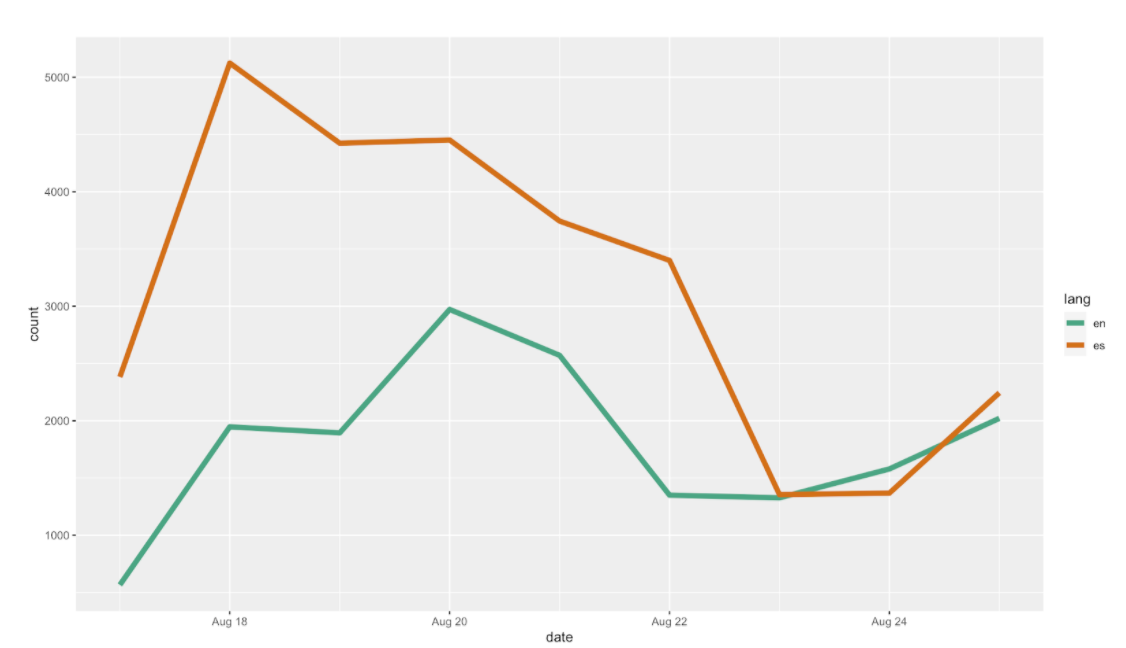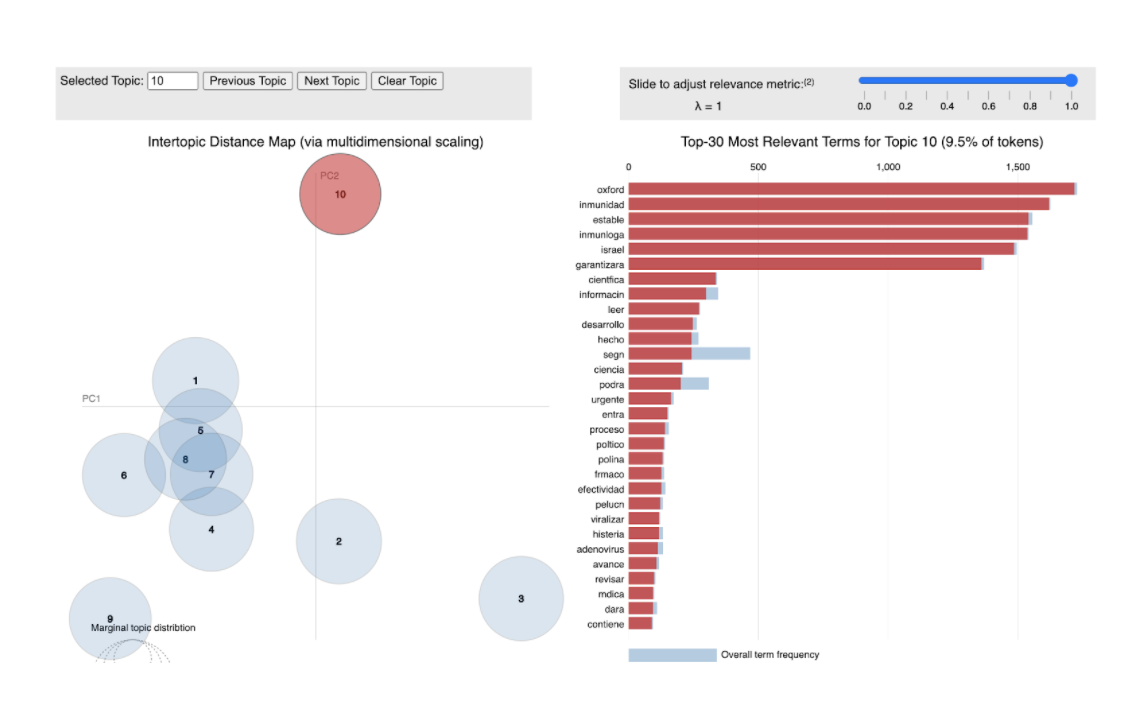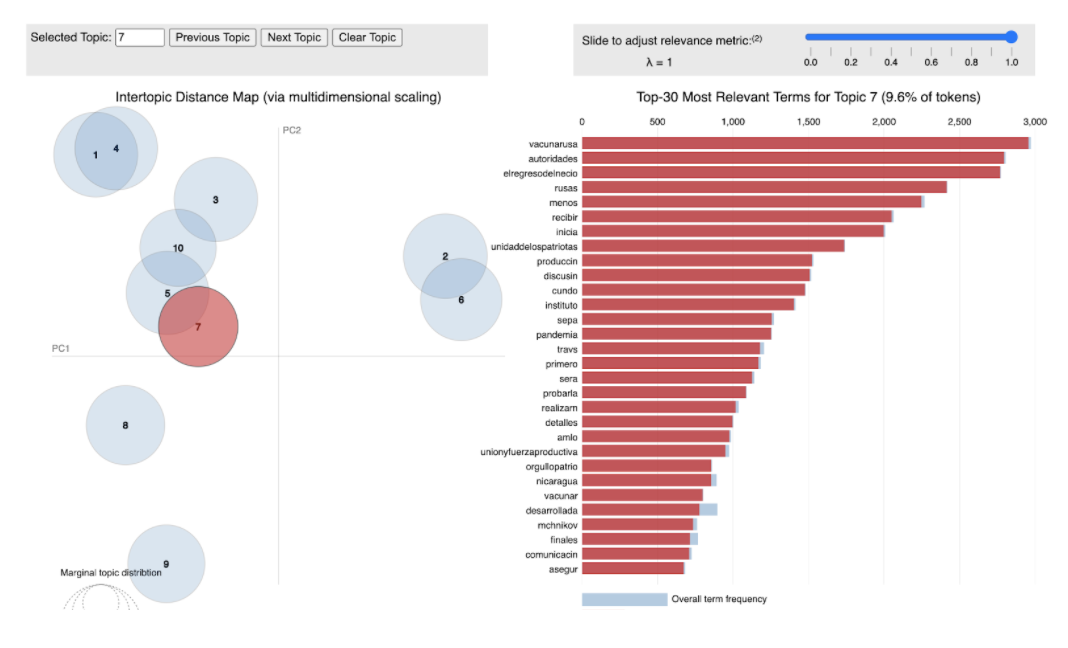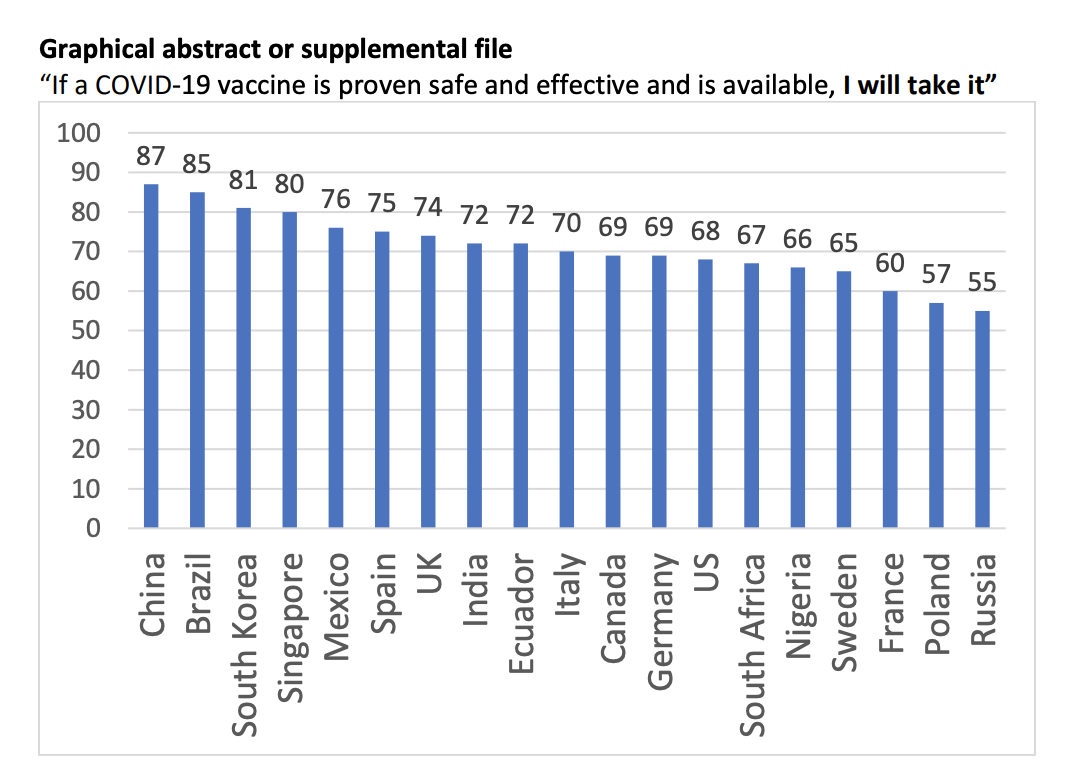Global enthusiasm and American trepidation in Russian diplomatic vaccine efforts
Key Highlights
- The announcement of the Russian COVID-19 vaccine, also referred to as Sputnik V, has received marginal reception in the United States. Within U.S. domestic social media conversation, Sputnik V is generally perceived as unreliable. These concerns could potentially add to preexisting skepticism towards vaccine efforts in the U.S. more generally.
- In contrast to low interest in the U.S. social media ecosystem, international social media conversation includes high volumes of Sputnik V content, particularly in Mexico, Venezuela, Turkey, and India. Since August 11, Russia has announced partnerships with 16 nations ranging from testing assistance, production support, and securing initial releases of the vaccine. Of particular note, Indian and Russian officials are in negotiations to secure mass production of the Sputnik V vaccine in India. A list of current agreements can be found below.
- The FAS Disinformation Research Group detected significant Sputnik V content across 10 languages from August 17 to 25. This analysis focuses on developments within the spanish language vaccine conversion and finds a significant narrative shift away from the UK’s Oxford-AstraZeneca vaccine efforts to focus on the Russian Sputnik V program. The narrative emerging in Mexico and Venezuela is supportive for Russian efforts, highlighted in public statements from Mexican President Lopez Obrador offering praise to Russia’s vaccine development and volunteering to be the first Mexican to take the vaccine.
Key Trends
Increased language specific activity linked to Russian vaccine partnerships
Since the announcement of the Russian Sputnik V vaccine on August 11, social media has been awash with speculation, consternation, and detestation of the untested vaccine. The vaccine was immediately turned into a political talking point, with accounts like @ImpeachmentHour, unfoundedly, claiming “Trump says the US will buy 100,000,000 doses of an untested, unproven Russian Covid vaccine! Anybody see this coming?”
While Americans are skeptical of Sputnik V, with some incorrectly claiming that the U.S. government is involved in either its manufacturing or distribution, their skepticism was far outweighed by large spikes of activity that praised and amplified the vaccine internationally.
Spanish language tweet volume increased from August 18 to 22, as both Mexico and Venezuela arranged partnerships with Russia to receive doses of Sputnik V as part of international phase 3 trials. English (green) and Spanish (orange) language tweet volumes by day are seen below.

The increase in Spanish tweet volume over this same period, on average doubling in from 2000 to 4000 per day, is accompanied by indications of widespread automated account activity to include rapid propagation of specific content, large shifts in narrative structure, and lack of content diversity. In repeated sampling of accounts tweeting between August 18 and 22, publicly available bot detection platforms estimate that 71.5% of accounts are bots, while automated activity before and after this period falls to 28.6%. Moreover, structural changes take place in the conversation about COVID and vaccine development. Seen below, LDA topic modeling of Spanish-language tweets prior to the 18-22 August surge in content focus on the Russian vaccine efforts while prior conversation is less focused.


The increased language specific activity is largely the result of retweets of Pro-Russian, anti-American, and/or pro-Sputnik V content. Moreover, it’s mostly repeated and reshared content. The diversity of content drops dramatically and the vast majority of all retweets of this content exists only during the spikes in activity.
Before the vaccine collaboration announcements, we can see there weren’t robust Spanish and Turkish-langugae conversations surrounding the Russian vaccine. We believe that the spikes are largely astroturfed, but that the conversations in the following days could be a combination of organic content and a sustained effort to keep pro-Sputnik V content circulating.
But these efforts in Mexico and Turkey do not stand alone. We know that Russia will soon announce its vaccine efforts in India, as it has formally approached the Indian government, according to press reports. Spikes in English-language content in India are drastically less negative than English-language content from the United States.
By creating and sharing large swaths of positive reactions to Sputnik V trial announcements, public opinion, especially from those readily persuadable, can be artificially shifted in favor of Sputnik V and Russia, and away from the American vaccine effort. What is most revealing is the assortment of countries that Russia has asked to be a part of their vaccine effort. The potential participation of Mexico, Turkey, Saudi Arabia, South Korea, and Israel, among others, puts the U.S. in a precarious diplomatic position. Though the coronavirus threat is global, America is baited to take note that its allies would readily volunteer to test a widely criticized vaccine.
False claims about the Sputnik V vaccine
Pro-Sputnik V efforts have stalled in the U.S., where suspicion has taken over the narrative. Online, Americans believe that the Russian vaccine is poorly researched and lays the ground to make similar claims against an American-approved vaccine as well. Influencers speculate that the Russian vaccine provides ample prologue for a vaccine Cold War. Beyond well-founded skepticism, there has been disinformation surrounding the vaccine, like an article making the erroneous claim that Russia President Vladimir Putin’s daughter died after taking the Sputnik V vaccine. The article was shared nearly 11,000 times on Facebook alone. The story has been debunked by Snopes,
Speculation that the US will rush a vaccine, combined with spurious claims that the American president has bought doses of Sputnik V vaccine, will have consequences for vaccine uptake in the US. A recent study in preprint says that 68% of Americans will take a COVID-19 vaccine if “proven safe and effective,” but from what we’ve seen in the reaction to the Sputnik V vaccine, safe and effective as deemed by government institutions might not be convincing enough. In the same study, only 55% of Russians said they would take a vaccine under the same conditions.

Methodology
We performed an analysis of 125,000 tweets with the terms sputnikv OR sputnik OR RussianVaccine -filter:verified OR filter:verified”. between August 17th-25th, in the top ten languages and from the 16 countries that agreed to participate in Phase 3 trials, mass production, and/or receive priority in delivery schedule of a Russian-developed vaccine. The analysis demonstrated spikes in activity in respective languages when Russia announced the willingness of countries where those are primary languages to work with Russia now (rather than waiting for the United States or other nations to finish vaccine development). Spikes in tweets in these languages overlap the timing of the announcements.
The top ten languages were: English, Spanish, Japanese, Turkish, German, French, Portuguese, Russian, Arabic, and Catalonian. The 16 countries announced by the Russian Direct Investment Fund were: Belarus, Philippians, Myanmar, UAE, Saudi Arabia, Israel, Jordan, Vietnam, Palestine, Kazakhstan, Azerbaijan, Venezuela, India, Brazil, Mexico and Turkey.)
The increased language specific activity is largely the result of retweets of Pro-Russian, anti-American, and/or pro-Sputnik V content. Moreover, it is mostly repeated content. The diversity of content drops dramatically and the vast majority of all retweets of this content exists only during the spikes in activity.
Samples of retweeters pushing this new pro-Russia/pro-vaccine content demonstrate a high percentage of bot activity while the population of accounts in the conversation pre-introduction of mass retweeting show normal levels of authentic accounts. FAS conducted automated activity (bot) detection analysis by applying distributional analysis account characteristics. Through distributional analysis FAS detected account behaviors outside that of normal human operated accounts, indicating an increased likelihood of automated bot activity.
This demonstrates that dramatic differences of topic and sentiment in COVID-related messaging are seen in specific languages both prior to and immediately after countries that speak those same languages join the Russian vaccine development effort.
For more about the FAS Disinformation Research Group and to see previous reports, visit the project page here.
While it is reasonable for governments to keep the most sensitive aspects of nuclear policies secret, the rights of their citizens to have access to general knowledge about these issues is equally valid so they may know about the consequences to themselves and their country.
Nearly one year after the Pentagon certified the Sentinel intercontinental ballistic missile program to continue after it incurred critical cost and schedule overruns, the new nuclear missile could once again be in trouble.
“The era of reductions in the number of nuclear weapons in the world, which had lasted since the end of the cold war, is coming to an end”
Without information, without factual information, you can’t act. You can’t relate to the world you live in. And so it’s super important for us to be able to monitor what’s happening around the world, analyze the material, and translate it into something that different audiences can understand.